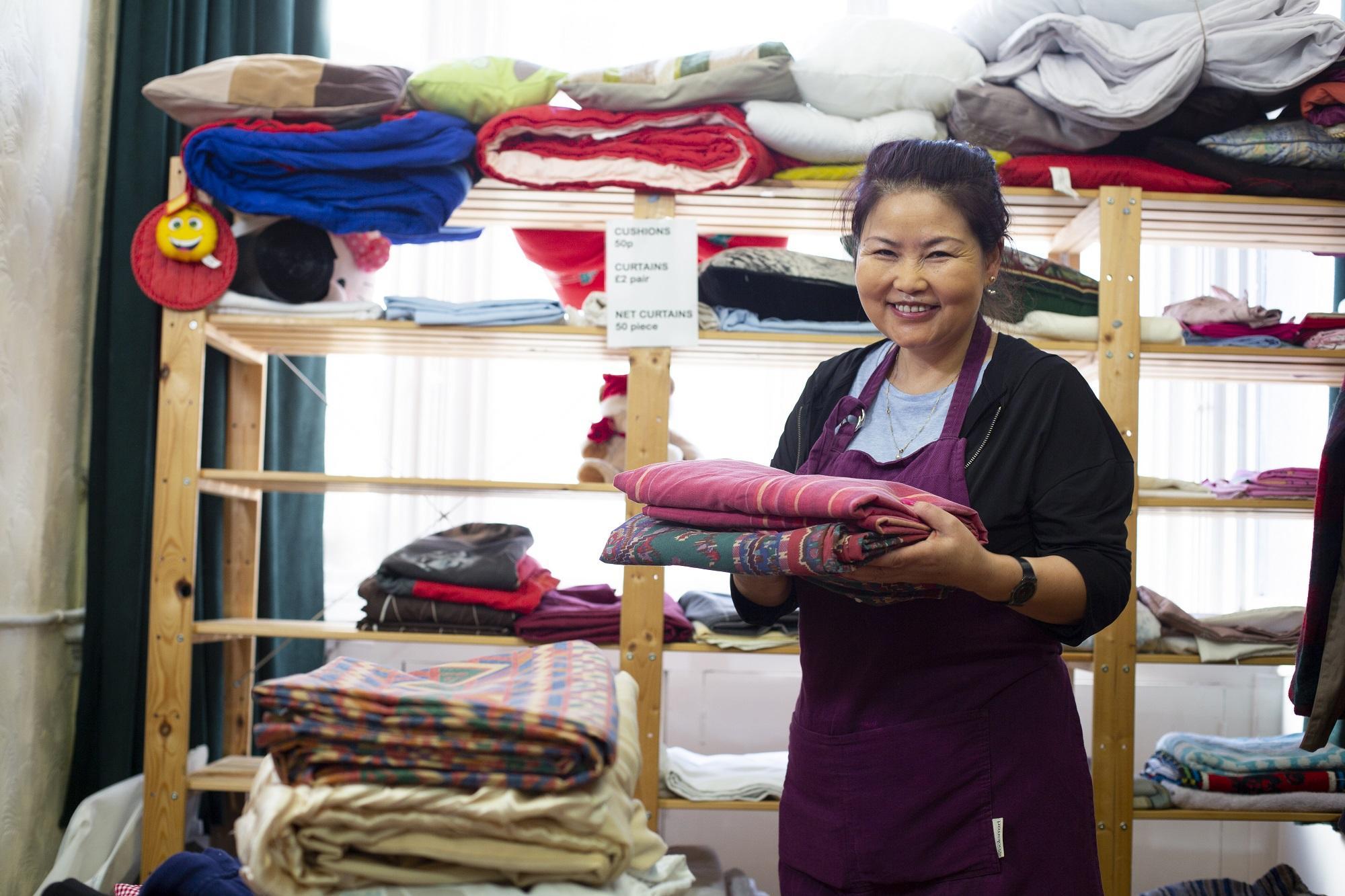Here’s to all the small charities you’ve never heard of
As this year's Happy List goes live, Kirsty Marrins, communications consultant and former Small Charities Coalition trustee, honours the work done by the UK's lesser known charities

When you think of ‘charity’, who do you think of? Most likely the big, household names whose adverts you see on your television or in your favourite weekly magazine. And whilst these charities are doing amazing work - fighting cancer, heart disease or dementia - they actually only make up 3% of the charity sector.
There are 168,000 charities in the UK and 97% of them are small. But being small doesn’t mean they’re not mighty. Small charities are the lifeblood of communities; doing incredible work, often with little or no recognition.
The Happy List is an annual celebration of people whose kindness, bravery and dedication is making the UK a better place. This year the Happy List is celebrating the work of small charities by making them honorary Happy Listers! I could not be more delighted - and proud - that small charities are being recognised for the tireless work that they do and the enormous (and often unrecognised) impact that they have on their local communities.
I want to celebrate the work that small charities do by sharing a few examples with you. I hope it not only shines a light on the range of issues that charities are tackling but that it inspires you to support them.
Helping struggling parents
Did you know that there are over 100 Baby Banks across the UK? With over 4 million children in the UK living in poverty, charities like Little Village , in London, and the Baby Bank Network are stepping in to provide clothing, toiletries, bedding and even toys to help struggling families give their children the basic essentials that they otherwise couldn’t afford.
The Baby Bank Network was started by a group of mums in Bristol in June 2015 to help alleviate child poverty and support local families who were experiencing both financial and emotional stress. They also wanted to help reduce waste and promote the reuse of items. Four years later and their network has spread to Exeter, the Isle of Wight and Aberdeenshire with over 2,000 families benefiting from their service.
Improving literacy skills and job prospects
One in six adults in the UK has poor literacy skills, according to the National Literacy Trust. Having poor literacy skills affects people’s chances of securing work and costs the economy £2.5 billion every year. The Doorstep Library is a small charity who recruits and train volunteers to go into some of the most disadvantaged areas in London to help introduce children to the joy of reading. They currently visit over 500 children a week; helping them to improve their literacy, actually enjoy reading for pleasure and ultimately improve their future prospects.
Supporting children with complex needs
Poor mental health affects one in four people and there are lots of charities who provide support and who are helping to end the stigma around mental health. One small charity in Essex, Kids Inspire, is helping children who are considered ‘too complex’ by support agencies. They work with children who are at an educational, social and/or economic disadvantage which is the result of trauma or emerging mental health issues by providing bespoke service packages. These can include individual therapy, coaching, mentoring or group work. In the last year alone they have worked with over 3,000 individuals to help children turn their lives around.
Making asylum seekers feel welcome
Coming to a new country to start a new life is hard. But it’s even harder when you’re seeking asylum. Did you know that whilst you’re seeking asylum, you’re not allowed to work? This means that many people who have come to the UK to flee conflict and violence then face potential homelessness whilst they’re in the system. Charities like Asylum Link Merseyside provide valuable support, advice and services to both asylum seekers and refugees.
Ewan Roberts, centre manager, says, “The deficit in the asylum system is that nobody wants you and you’re prohibited from working, which takes away your purpose. We’ve tried to challenge that, so of our 130 volunteers, around 50 are asylum seekers. It allows people to showcase the skills they’ve got and bring their taste of home with them, especially for the kitchen volunteers. Being able to share something like that and give a bit of yourself to others is such a powerful thing. We all need to feel useful and loved or appreciated.”
You’ve probably never heard of these small charities, because you’ve been lucky enough not to need them. But look around, open your eyes to the amazing work going on in your community and get involved. Could you volunteer or make a donation? Your community needs you and local charities are the conduit through which you too can make a big difference. Who knows, maybe next year you could find yourself on the Happy List.
Follow Kirsty on Twitter at @LondonKirsty
Join our commenting forum
Join thought-provoking conversations, follow other Independent readers and see their replies
Comments
Bookmark popover
Removed from bookmarks